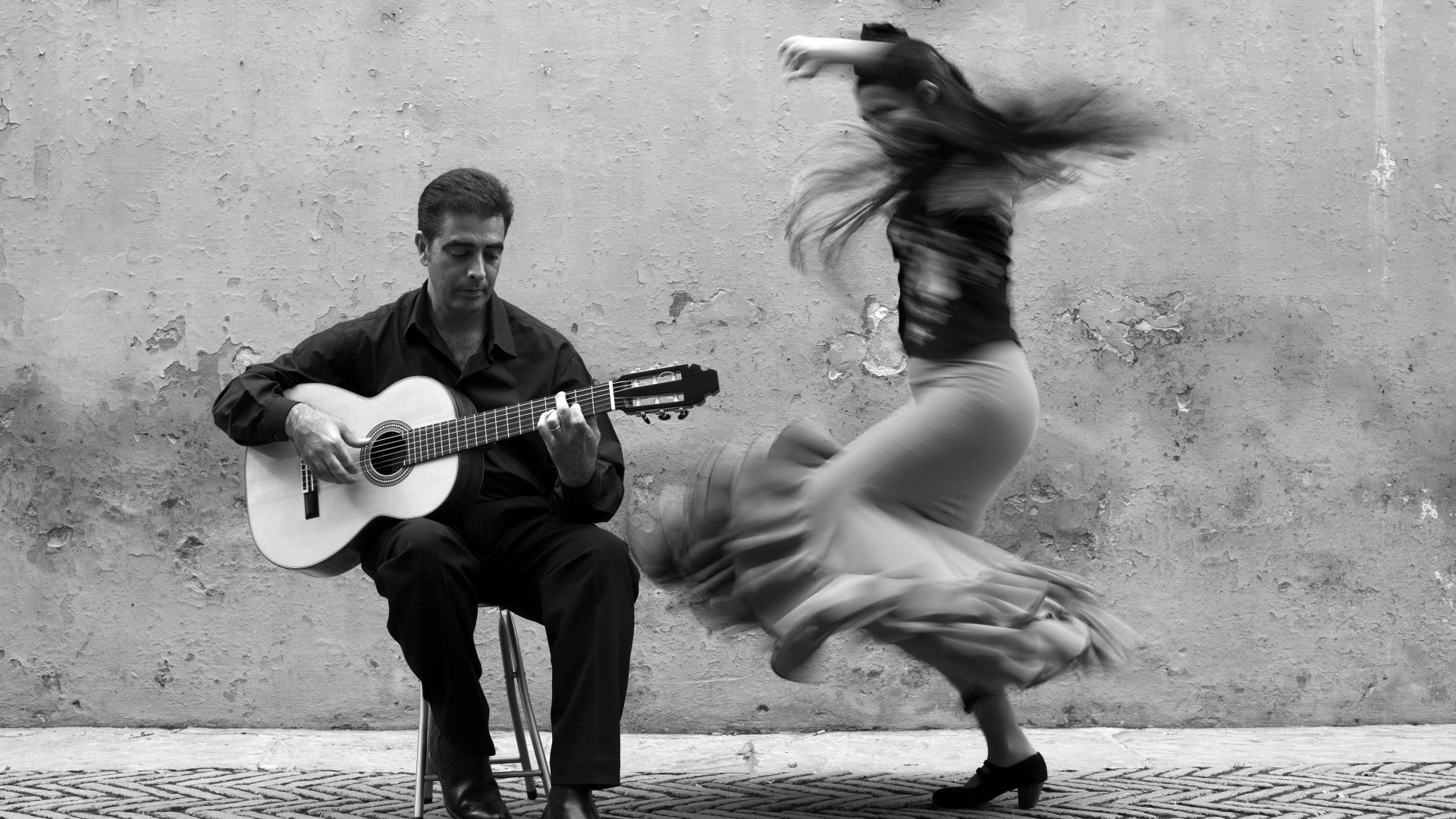The 2008 crash broke Spain, and it has been in the process of remaking itself ever since. But some things are immutable and, for the Spanish, flamenco is one of them.
Whether it is dancers on a gaudy postcard or a performance at a peña flamenco – a club where the art is fostered in its most authentic form – flamenco is a symbol of Spain that remains unchanged, indeed a “monument” inscribed on Unesco’s list of Intangible Cultural Heritage of Humanity. The elusive duende – the emotional soul of flamenco – found in the perfect marriage of baile (dance), toque (guitar), cante (voice), and jaleo (“hell raising” – handclapping, foot stomping, and shouts), is still doggedly pursued and, like anything that matters, flamenco has proved it can still cause controversy.
Last month, the parliament of Andalucia passed its Flamenco law, defining flamenco in clear terms of its roots in the culture of the gitanos (gypsies), and making it a compulsory part of the curriculum in the region’s schools. It is a move that has been surprisingly contentious. The art’s practitioners have long lamented its lack of proper funding, and Arturo Bernal, the councillor in charge of drafting the legislation, has pointed to the money that will flow to flamenco projects as a result of the law as one of its major benefits.
He has even gone so far as to liken the law’s rejuvenating effect to that of the Concurso del Cante Jondo, the flamenco competition held in Granada in 1922, which rehabilitated the art at a time when it was at risk of dying out.
But not everyone is convinced that the law is the right move, and defining such a multifaceted cultural phenomenon in law is a clearly thorny issue. Flamenco expert Antonio Ortega was reported as saying, “To legislate flamenco could be the most anti-flamenco thing in the world. Are you going to send inspectors to check what is flamenco and what is not?”
In a country that is less than half a century clear of fascism, government involvement in culture, however well-meaning, is bound to be met with misgivings. Flamenco was promoted as an important national symbol under Franco, while grassroots practitioners were simultaneously persecuted as potentially subversive elements – proponents of the art can be forgiven for their wariness.
Meanwhile, the toque of flamenco has also been at the centre of a long-running row. Paco de Lucía is the most celebrated flamenco guitarist of all time, but shortly before his death, he discovered that half his royalties for some of his most famous songs had been claimed by his producer, José Torregrosa. Now, after a 13-year legal battle, his daughter has won her claim to full rights to the songs (remarkably, she trained as an intellectual property lawyer in pursuit of the case).
Torregrosa died in 2007, but his family have been ordered to pay back all the incorrectly claimed royalties – potentially a huge sum. This, and the fact that earlier this year an album of Paco de Lucía’s legendary performances at the Montreux jazz festival saw him re-enter the Spanish charts again almost a decade after his death, prove that flamenco is still big business, but it also retains a power far beyond financial considerations.
A reminder of the raw power of flamenco is found in Dos Gritos de Libertad (Two Cries for Freedom), one of the most remarkable records ever released, which celebrates its 25th anniversary this year. The album was the result of a government-sponsored singing competition in Spanish prisons, the prize being a studio session and a reduced sentence. José Serrano, then 18 years into a 25-year murder sentence, and Antonio Agujetas, imprisoned on drug charges and part of a flamenco singing dynasty, were the winners and recorded the album under armed guard.
Thanks to the uproarious jaleo, it is a record where the atmosphere is palpable, and surely no singers have surpassed their emotional depths. Such music begins to explain why flamenco remains both so contested and so coveted.




